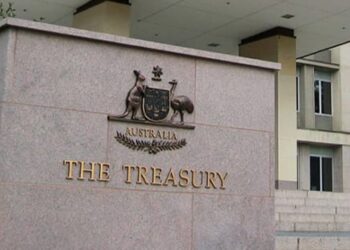In January, Treasury announced a consultation on Corporations (Relevant Providers—Education and Training Standards) Amendment (2024 Measures No. 1) Determination 2024.
Under the education and training standards for relevant providers outlined in the Corporations Act, a person must complete an approved bachelor or higher degree, or equivalent qualification, or foreign qualification, that has been approved by the minister.
According to the explanatory statement released alongside the exposure draft, part of the implementation of Treasury Laws Amendment (2023 Measures No. 3) Act 2023 in September 2023 included an amendment to the qualifications standard in section 921B of the Corporations Act, which enabled greater flexibility for a new entrant to demonstrate that they satisfy the conditions of an approved degree/qualification.
These conditions generally relate to the time a person commenced the approved degree/qualification and the specified units of study that the person must have completed.
“This information would ordinarily be evident from the person’s academic transcript for the approved degree/qualification. However, this is not always the case,” the explanatory statement said.
The latest draft legislation amends the Corporations (Relevant Providers Degrees, Education and Training Standards) Determination 2021 to enable financial advisers to demonstrate that they satisfy the conditions of an approved degree/qualification in the following ways:
- Via academic transcript(s) issued by the provider of the approved degree/qualification, which demonstrates that the person has met each of the approved conditions for that approved degree/qualification.
- Via statement(s) issued by the provider of the approved degree/qualification, confirming that the person has met each of the approved conditions for that approved degree/qualification.
In its submission to the consultation, the FSC said that the determination is a “welcome measure”, but expressed concern that there is still work to be done.
“However, as worded it will not solve for advisers whose degrees are not scheduled under the education requirements and the proposed transition period for tax (financial) advisers indirectly discriminates against advisers who left the workforce within the proposed period,” the submission said.
Among the FSC’s recommendations is that the determination is revised to account for situations where certain financial planning degrees are not scheduled to allow for more discretion by amending new subsection 1A and amending subsection 2A.
It also pushed for the determination to more expressly require the adviser to demonstrate they have met the requirements to the licensee.
The FSC did note that the proposed provision 2A will make it easier for new entrants to demonstrate they have met the existing degree requirements in situations where a degree has not been awarded.
“However, it will not solve situations where a graduate undertakes a financial planning degree that is not listed on the schedule of approved courses and qualifications, despite the subjects meeting the education standards,” it said.
In order to resolve the issue, the FSC said the section of the determination that relates to approving degrees should be “broadened to specify what is approved as ‘equivalent’ to the degrees set out in Schedule 1 of the determination, not just the conditions which apply as a further requirement to having completed a degree specified in Schedule 1”.
It added that the determination should also be revised to deal with possible minor/technical discrepancies with the units of studies specified as conditions.



